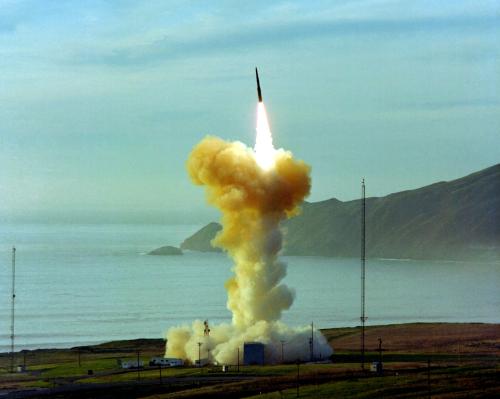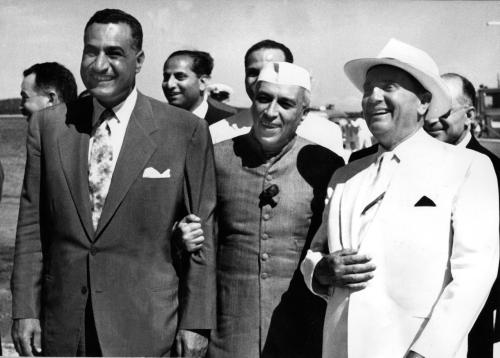Iran struck a defiant note as talks began anew with the United and five other countries over its nuclear ambitions. In an interview with PBS Newshour’s Margaret Warner, Suzanne Maloney discusses Iran’s nuclear program and the state of diplomatic efforts.
MARGARET WARNER: And, for more, we turn to Suzanne Maloney, a former U.S. State Department official who dealt with Iran issues. She’s now a senior fellow at the Saban Center for Middle East Policy at the Brookings Institution.
And, Suzanne Maloney, thank you for being with us. So, with this — all this defiant language, what is it that drove Iran to return to these talks after more than a year?
SUZANNE MALONEY: Iran is returning to these talks as a result of the U.N. sanctions and a number of unilateral measures undertaken by the United States, the Europeans and other governments.
But the other issue that I think really brought the Iranians back is their hope to use this kind of a dialogue to splinter the international coalition, to undercut sanctions, and to ensure that they’re still dealing with the world beyond Iran.
WARNER: So, you do think that, in part, this is being used by them to buy time, but they are also feeling the heat?
MALONEY: They’re certainly feeling the heat.
And we know that the standards of doing business today in Iran are much more difficult, much less convenient, much more expensive than they used to be, simply because they can’t undertake the normal sort of banking procedures that they typically would.
But, obviously, the Iranians don’t appear to be in a mood to concede. They don’t — they are not talking about making any real concessions. And it’s not even clear that they’re willing to talk about the nuclear program at all. So, I think they’re less interested in serious negotiations, more interested in trying to see what they can get out of this process.
Watch the full interview or read the transcript at pbs.org »
The Brookings Institution is committed to quality, independence, and impact.
We are supported by a diverse array of funders. In line with our values and policies, each Brookings publication represents the sole views of its author(s).



Commentary
Iranian Nuclear Program: Will U.S. Concede Anything in Talks?
December 6, 2010